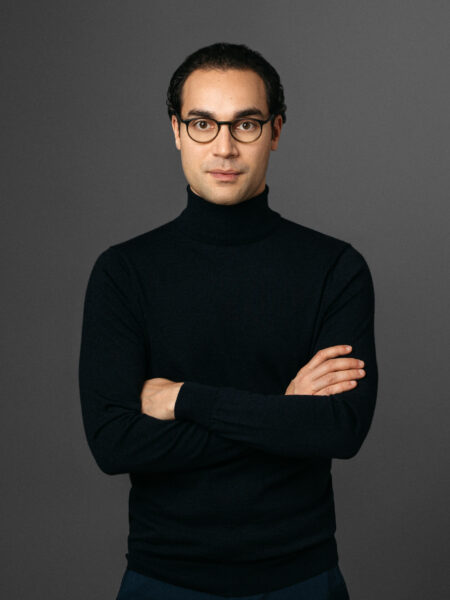
Kieran Gopaul MA '13
For our Alumni Q&A series, we caught up with Kieran Gopaul MA ’13, Executive Director at Richard Attias & Associates, about change and movement, his work in strategic communications and the importance of having a support system as students venture into the professional world.
Tell us a little bit about your career path?
The common thread in my career is change and movement. This may be because of my early childhood. My family moved to four different countries by the time I was five years old. I guess that’s why I like change and working across cultures. I feel fortunate to have worked in communications and education on almost every continent.
What are you currently working on?
I work for a strategic communications agency in New York City. It’s an exciting company to work for, especially if you’re entrepreneurial and enjoy working on international projects. In my current role, I’m responsible for operationalizing our communication services and growing our business in the U.S. Our company is growing fast — we’ve tripled in size since I joined in 2017!
I also create and advise on independent creative projects. I recently Executive Produced the short film Sippin’ written by my USC SDA classmate, Gilbert Salazar, and directed by Rosa Navarrete. We created Sippin’ to provoke a dialogue on racial discrimination against women of color in the workplace.
What do you miss about SDA?
I miss our cohort. We were only eight students in the M.A. in Applied Theatre Arts program so we got to know each other very quickly. I’m happy that much of what made our program special is thriving in the Institute for Theatre & Social Change. Our professors would remind us that healthy vulnerability was critical to our creative work, which helped us build strong bonds, too. Oh, and I miss froyo sessions after evening classes in McClintock Theatre!
What was your best USC experience?
One of my best experiences at USC was designing and co-facilitating a participatory theatre program for youth. Putting into practice what we were learning in the classroom and positively impacting youth were enriching experiences for me. I documented this program using a multimedia website as an online resource for anyone interested in youth and community development.
Was there a class that was particularly meaningful or influential?
That’s hard to answer, but if I had to pick one, it would probably be our Embodied Poetics class. It was taught by Professor Brent Blair and inspired by Kristin Linklater’s Freeing the Natural Voice. As an actor who had trained in a French-speaking country before moving to Los Angeles, I loved discovering a new approach to voice training. The physicality and movement helped me to find my center. Again, change and movement! I still use Linklater’s exercises and probably always will.
How have your studies at USC informed your approach to your work?
Building a shared vision with our clients and staff is critical to success in my work. Being trained in participatory approaches to community development at USC has informed my approach to co-leading international teams.
Can you tell us a little about how you view the role of creativity in leadership?
One aspect of leadership is the courage to do things differently, even when it’s never been done before. Creativity helps us to suspend disbelief and to imagine what we struggle to believe is possible.
What can students do during their training to prepare themselves for the professional world?
I recommend proactively finding professional mentors and nurturing solid relationships with faculty. The transition from the academic to the professional world can be challenging, and it’s essential to have a robust support system in place.